Iran: nuclear half-life
Rejecting ultimatums
Iran still hopes that the Joint Comprehensive Action Plan (IFAP), better known as the “nuclear deal,” will continue to work. It is possible that even without the return of the United States. This is precisely how paradoxically some experts, including the American ones, estimated Tehran’s decision to “suspend the fulfillment of certain obligations” in the framework of the UFIS. As it is known, 8 of May Iran sent the ambassadors of Germany, Great Britain, China and Russia its notice of such a decision.
Specifically, we are talking about the fact that since May 8 in Tehran, they no longer consider Iran to be bound by certain restrictions that the country imposes on the FIDD. So, Iran will not yet really limit the volume of atomic materials remaining in the country - heavy water and uranium enriched to the level of 3,67 percentage of the U-235 isotope. SVPD stipulated that no more than 300 kg of such uranium should be stored in Iran, by the way, very far from the level of the weapons grade - 80%. Iran was allowed to keep only 130 tons of heavy water, and the country pledged to sell all the surplus in exchange for uranium concentrate.
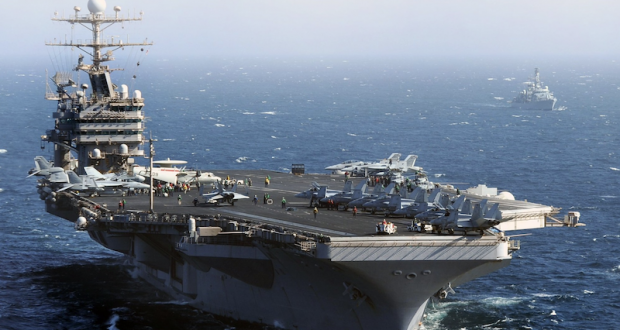
The decision to suspend the fulfillment of obligations was not taken personally by the country's president, Hassan Rouhani, but by the Iranian Supreme National Security Council. Of course, Tehran’s such a dramatic step was a reaction to the direction of the American aircraft carrier Abraham Lincoln to the Persian Gulf, which made the situation in the region extremely tense. Meanwhile, the Lincoln raid in Washington is also called only a response to Tehran’s threat to block the Strait of Hormuz. However, it is clear that such a school debriefing on the principle of "who is first" will inevitably lead us ... to the US withdrawal from a nuclear deal.
Despite the fact that Tehran does not withdraw from the FIDD, but merely suspends restrictions on two points under the agreement, the European troop of UN mediators (Great Britain, Germany and France) immediately rejected Iran’s latest decision on a nuclear deal. In London, Berlin and Paris, he described it as an ultimatum, calling into question the need for the very existence of SVPD.
“We reject any ultimatums and will evaluate Iran’s compliance with the agreement on the basis of Iran’s actions with regard to its nuclear obligations under the UFAS and the Nuclear Non-Proliferation Treaty weapons- noted in the statement. “In this context, we recall the crucial role of the IAEA in monitoring and monitoring Iran’s compliance with its commitments related to the nuclear program.”
The EU representative for foreign affairs and security policy Federica Mogherini, who acts as the coordinator of the deal on the nuclear program, was also informed about specific points and technical features of the decision taken by Tehran. It is characteristic that the decision to suspend the fulfillment of obligations was made not by the president of the country, but by the Iranian Supreme National Security Council.
Not long in coming, and the response of Washington. The new portion of the US sanctions, the decision on which was immediately signed by the President of the United States, Donald Trump, affected the metallurgical production of Iran, which is gaining momentum. For the next time, the current White House owner is not eager to do things differently than his predecessor Barack Obama did, and at the same time to confirm his reputation as a “guy who keeps his word.”
An “effective” president is not only trying to score points a year before the election campaign begins. He is also trying to reason the Washington hawks, led by national security adviser John Bolton. From such positions, almost all actions of the American administration can be regarded solely as provocative, in fact forcing Tehran to confirm the image of the enemy created in Washington over and over again.
It is very significant that the same European troika (Great Britain, France and Germany), no less quickly, as in the case of the Iranian demarche, came out with a condemnation of the new US sanctions. French President E. Macron has generally placed on the United States the responsibility for a possible withdrawal from Iran’s deal.
“We regret the introduction of new US sanctions against Iran, following their exit from the FACU,” the document says. Nevertheless, many experts are not inclined to assess the situation too tragically now, considering that, despite the fact that the United States brings the matter to escalation, there will be no war.
“Nobody has any desire to get involved in such a costly war with image costs,” believes Iranian Yulia Shveshnikova. However, many people pay attention to the fact that the real way of the FISSD now simply does not work, and it’s good that Iran so far prefers just to frighten, without taking any real steps. It is not even about the fact that Iran refuses to export enriched uranium and heavy water, which is provided for by the UFID.
And these are just the first steps.
Judging by the information field, Tehran seems to have taken only the first step towards exiting the nuclear deal. But after all, if the Europeans succeed in reducing the tension in relations between Iran and the United States, and even more so sit the Americans at the negotiating table, and no matter what level, the second step will not be done.
Europe, losing billions from the failure of a whole series of contracts with Iran, continues to cling to a non-operational ADHD, not so much because of fear of the collapse of the global nuclear balance, but rather of wanting to emphasize its own independence from the United States. Perhaps not even from the United States, but personally from President Trump. French President Emmanuel Macron has repeatedly said that they will impose sanctions against Iran if they withdraw from the agreement. Europe, in its present position, is long overdue to speak of sanctions against the United States, but ...
But it was Emmanuel Macron, who, incidentally, wasn’t he alone, repeatedly reminded that Iran, adhering to a nuclear deal, despite the US’s exit from it, seemed to have returned years ago. Tehran is no longer free to directly sell its oil, it was not allowed to acquire either the American “Boeing” or the European “Airbus”. The Islamic Republic is now in a position that is in many ways worse than it was before the nuclear deal.
After the United States withdrew from the FISA, in Tehran, it was not without reason that they counted on support not only from Russia and China, but also from European participants in the deal. But the EU troika did nothing concrete. If something worked out, it was only with European bankers and businessmen, and politicians for the umpteenth time found themselves in the rearguard.
Russian Foreign Minister Sergei Lavrov had no choice but to make claims against European partners in the nuclear deal. The diplomat spoke harshly about the fact that they are either not ready, or not capable, or do not want to fulfill their obligations to the Islamic Republic at all.
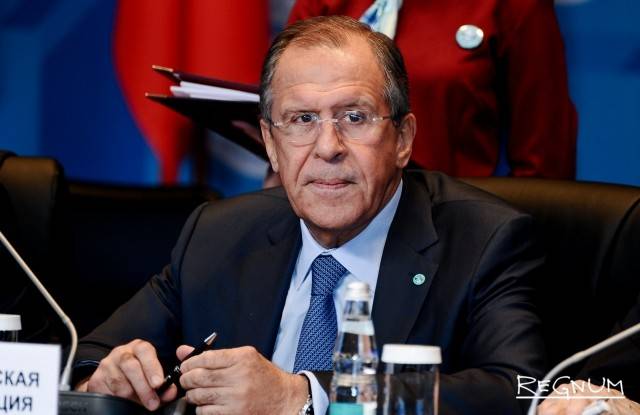
And this is despite the fact that, in spite of the notorious danger of the “Iranian atomic program,” the new American administration immediately started talking about the need to refuse to participate in the FACU. However, in reality, the Iranian atom in Washington was not at all afraid. There, no worse than in Moscow or Beijing, they understood that with their own forces Tehran would be able to reach very real possession of nuclear weapons very, very soon.
For Trump and his entourage, where the predominance of hawks is now too visual, it is much more important to strengthen US hegemony in the Middle East, supporting Israel, not letting go of Turkey, not losing to the Russians the oil sympathies of the Saudi princes. But most of all, the solution of almost every such problem is hampered, as it turns out, by Iran. That even with a minimum level of interaction with the Europeans can become a force so “real” that you can’t agree with it anymore. Although for some reason Obama was able to agree precisely, which seems to annoy Trump most of all.
And what about Tehran-2019?
From the point of view of assessing the prospects for the development of the situation around the FIDD, the current domestic political situation in Iran is also extremely important. After all, President Rouhani did not go alone to conclude a nuclear deal. Too many forces in the Islamic Republic at one time relied on the country's return to the world economic system, for which, in fact, excessive nuclear ambitions were sacrificed.
A huge role in the fact that Hassan Rouhani was able to put his signature on the SAPA was played not only by the support of the Mejlis, but also by the position of many members of the Council of Experts (SE). The SC is another major theocratic institution that, according to the Iranian constitution, is entitled to control the activities of the supreme leader of Iran, and in the event of his death choose a new one. The council consists of 86 people with an eight-year term of office, and, in terms of its capabilities, actually surpasses the traditional upper chambers of European parliaments.
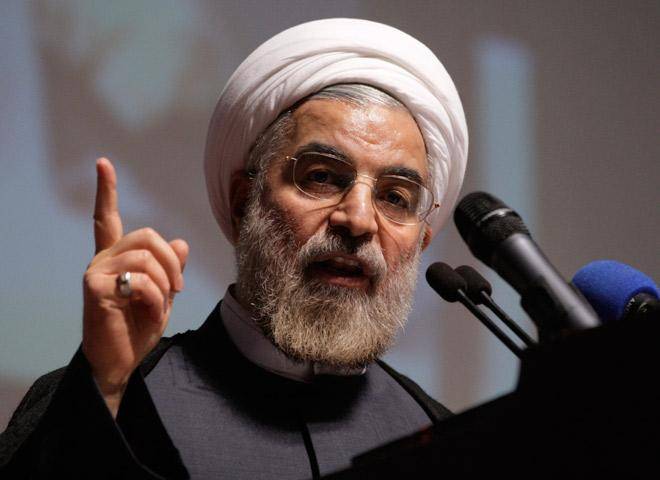
At the same time, in resolving such operational issues as the execution of certain international agreements, including the “nuclear deal,” the AOC is inferior to the Supreme National Security Council, which made the last decision on the UHVAT. Nevertheless, according to many observers, it is the current composition of the AOC, which was formed as a result of the elections just three years ago, so far allows Iran to rely on a balanced approach to the nuclear issue. The Council now includes many well-known religious figures representing the moderate wing of the Iranian establishment.
These figures are fully able to counterbalance the influence of the IRGC - the openly anti-American and anti-Israeli Islamic Revolutionary Guard Corps, which has taken control of a very large part of the Iranian economy. Manipulating the votes of the members of the SE, unlike the deputies of the Majlis, is much more difficult, which at one time played a positive role in alleviating the confrontation between Iran and Saudi Arabia. And for too straightforward confrontation with the United States, the Iranian radicals simply do not have enough advantage in this particular body.
The difficulties encountered by Iran to fulfill the requirements and conditions of the “nuclear agreement” are certainly provoked by the US leaving it. But each retaliatory step of Iran only aggravates its relations with the UN, although a certain degree of support from Russia, China, and even the three European participants of the “deal” does not deprive yet.
But how long this “bye” will be is hard to say. The current Iranian trend for radicalization remains very strong, although its potential is already clearly exhausted. Most experts consider the probability of a full return to the times of the “radical” of Mahmoud Ahmadinejad to be extremely low. Moreover, the Iranian population is not a short memory, and it remembers well that the victory brought to the country, if not the most convincing, achieved by reformers three years ago. It was the reformers who brought Iran out of isolation, allowing the country to make a real economic breakthrough, and they were able to actually defend Iran’s right to a “peaceful atom”.
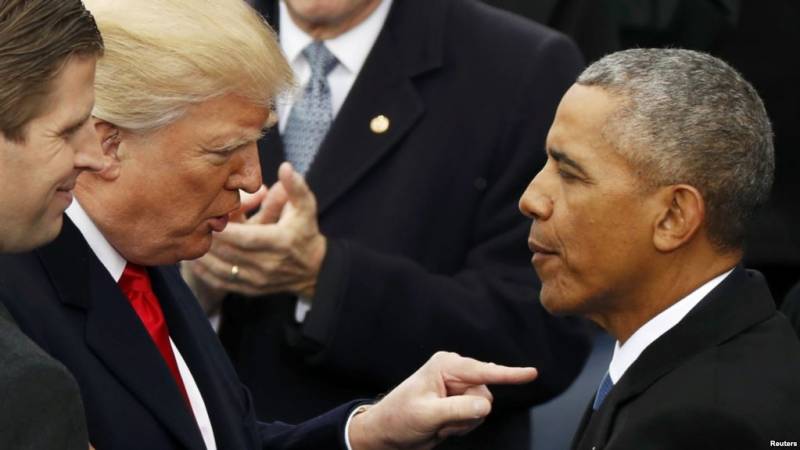
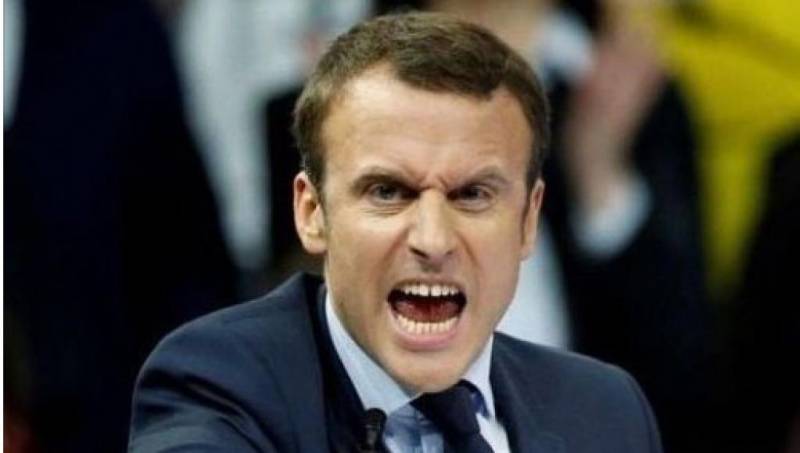
Information